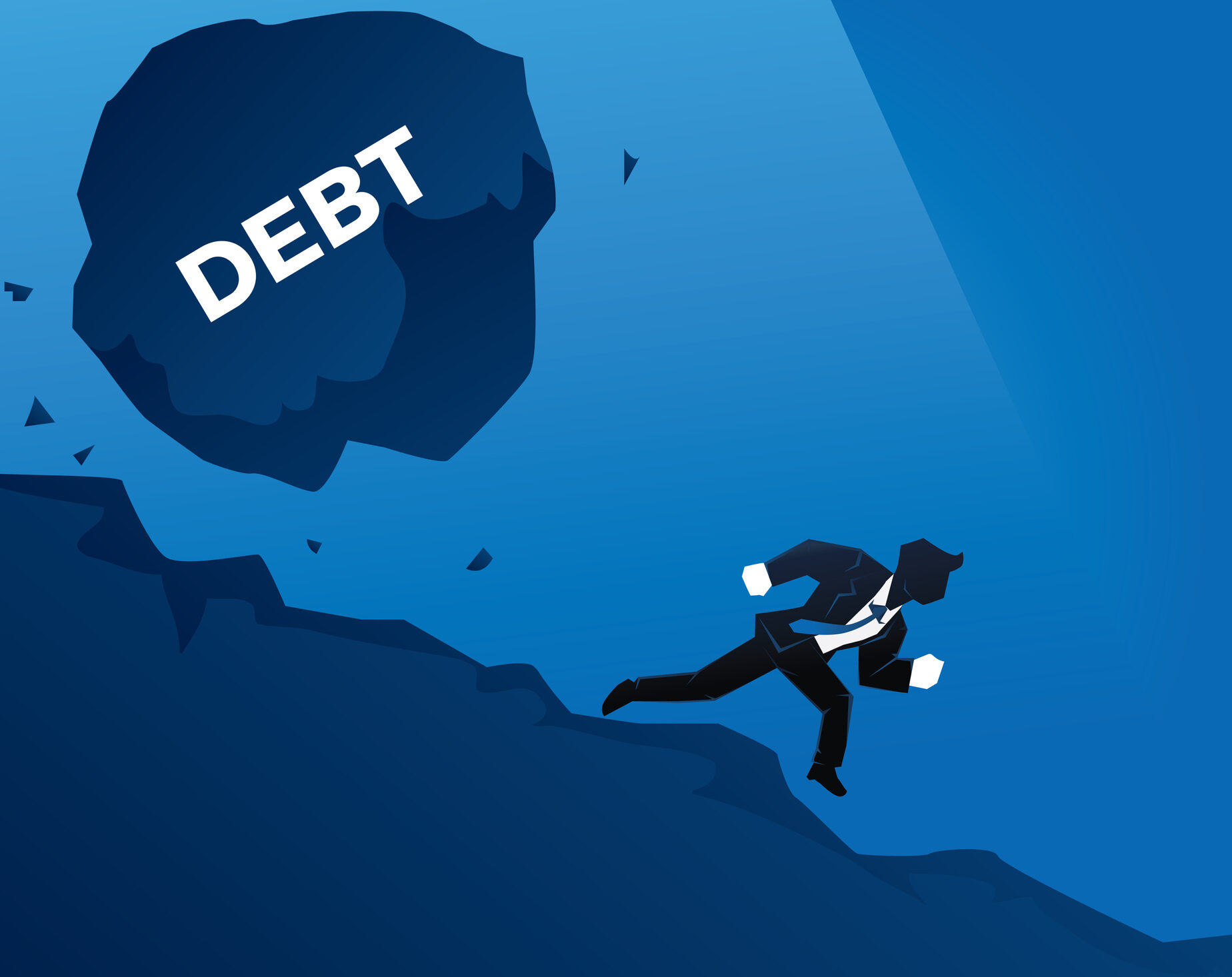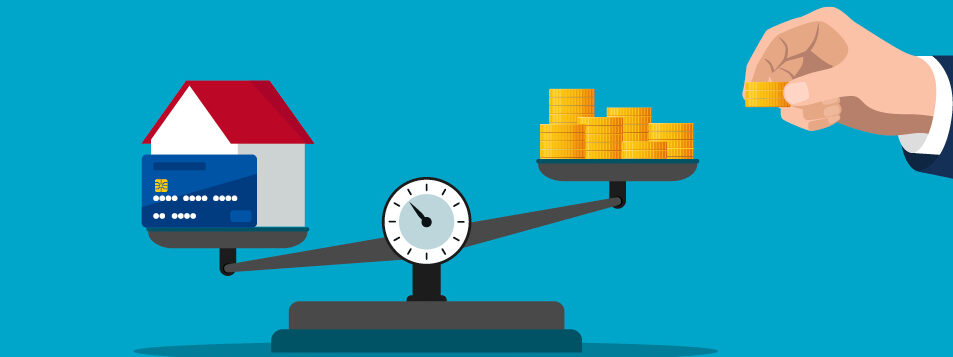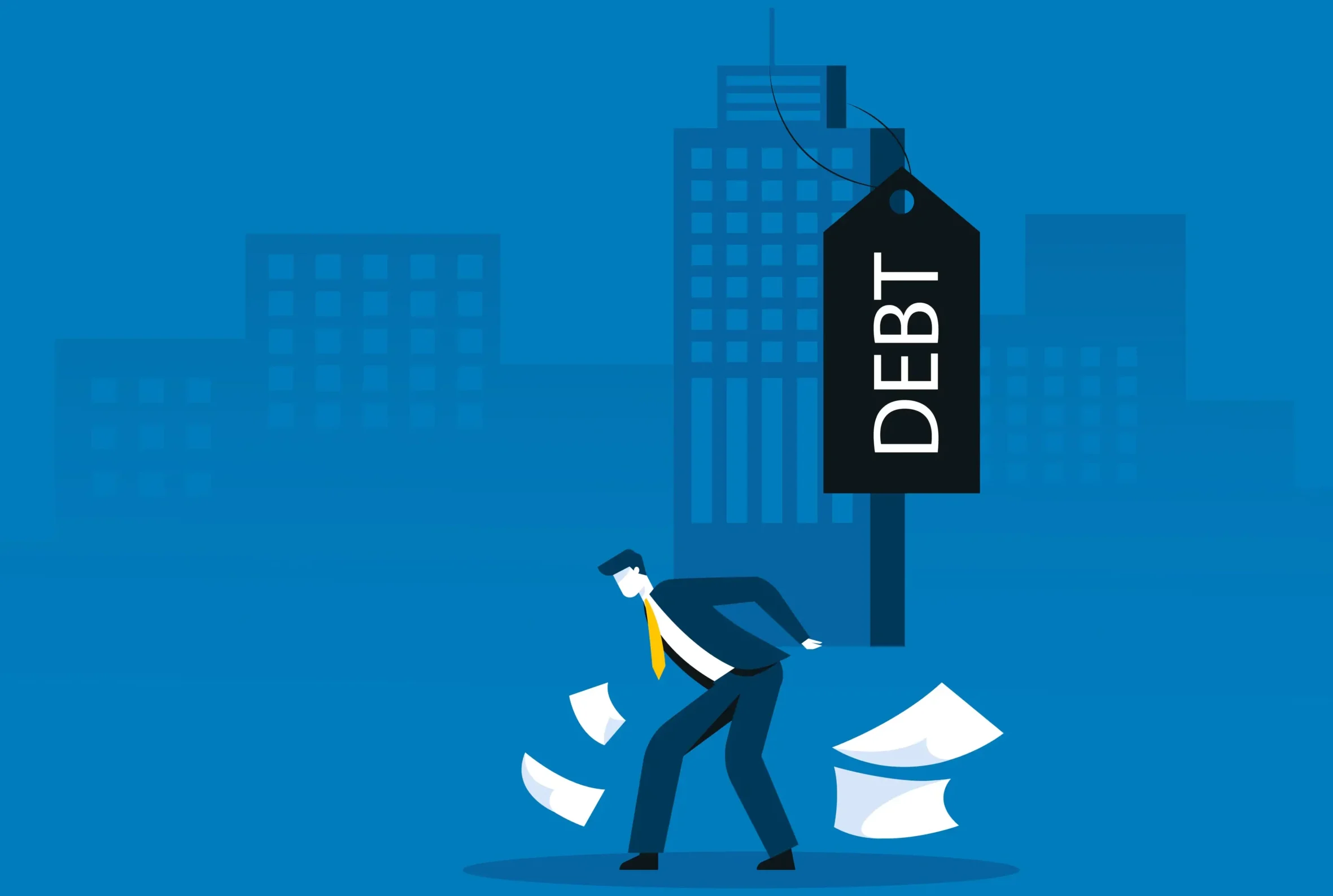
Modern creative businessman illustration concept.
The first step in paying off debt is to assess the total amount owed. This includes creating a list of all debts, including the creditor, interest rate, and minimum monthly payment. It is important to have a clear understanding of the total amount of debt owed in order to create an effective repayment plan. Once the total debt is assessed, it is important to create a budget in order to determine how much money can be allocated towards paying off the debt each month. This budget should include all necessary expenses, such as rent, utilities, and groceries, as well as any discretionary spending.
After creating a budget, it is important to choose a repayment strategy. One popular strategy is the debt snowball method, which involves paying off the smallest debts first and then moving on to larger debts. Another strategy is the debt avalanche method, which involves paying off debts with the highest interest rates first. It is important to choose a strategy that works best for individual circumstances and to stick with it in order to see progress in paying off debt. Additionally, it may be helpful to explore debt consolidation or refinancing options in order to lower interest rates and make payments more manageable.
Lastly, it is important to stay motivated and committed to the repayment plan. Celebrating small wins, such as paying off a single debt, can help to maintain motivation and momentum. Additionally, finding ways to increase income, such as taking on a side job or selling unused items, can help to speed up the repayment process. By assessing total debt, creating a budget, choosing a repayment strategy, and staying motivated, individuals can successfully pay off debt and achieve financial freedom.
Cutting expenses to free up money for debt repayment
One effective strategy for paying off debt is to cut expenses to free up money for debt repayment. This involves identifying and eliminating unnecessary expenses, reducing monthly bills, and finding ways to increase income. To start, it’s important to track income and expenses with a monthly budget. This will help identify areas where expenses can be cut. For example, eating out less frequently or canceling subscriptions to services that aren’t being used can free up money for debt repayment. Additionally, reducing monthly bills, such as negotiating lower rates for internet or cable services, can also help save money. Finally, finding ways to increase income, such as taking on a part-time job or selling unused items, can provide extra money to put towards debt repayment.

Another effective strategy for paying off debt is to prioritize debts and pay off the smallest balances first. This approach, known as the debt snowball method, helps build momentum and motivation as smaller debts are paid off first. It’s also important to pay more than the minimum payment on debts whenever possible, as this will help reduce the amount of interest paid over time. Additionally, consolidating debts into a single loan with a lower interest rate can also help save money on interest payments.
In conclusion, paying off debt requires a combination of strategies and techniques. Cutting expenses to free up money for debt repayment, prioritizing debts and paying off the smallest balances first, and consolidating debts into a single loan with a lower interest rate are all effective approaches. However, it’s important to remember that paying off debt takes time and discipline. Sticking to a budget, avoiding new debt, and making consistent payments are all key to successfully becoming debt-free.
Negotiating with creditors to lower interest rates and payments
One strategy for paying off debt is negotiating with creditors and lenders to lower interest rates and payment terms. This involves contacting creditors and explaining your financial situation, then proposing a new payment plan with lower payments that you can manage. By negotiating interest rates and payment terms, you can potentially reduce the amount of interest you pay over time and make your debt more manageable. It’s important to be proactive in contacting creditors before debt collectors become involved, as this can make negotiations more difficult. Additionally, debt relief programs can provide strategies specific to the type and amount of debt involved.
Another option for consolidating debt is to take out a loan or credit card with a lower interest rate and use it to pay off higher-interest debt. This can help simplify payments and potentially save money on interest over time. Refinancing with a balance transfer card or consolidating with a personal loan are common ways to consolidate credit card debt. Loan consolidation can also help repay debt faster by combining several high-interest rate loans or credit card balances into one new loan. However, it’s important to carefully consider the terms and fees associated with any loan or credit card before consolidating debt.
Negotiating with creditors and consolidating debt can be effective strategies for paying off debt, but they require careful planning and consideration. It’s important to weigh DIY payoff methods, such as the debt snowball strategy, which involves focusing on paying off the smallest balance first. A long-term repayment plan that allows you to pay back your debt with reduced or no interest may also be an option. Ultimately, the best approach will depend on your individual debt load and financial situation. By taking proactive steps to manage your debt, you can work towards a more secure financial future.
Staying motivated and on track during the debt repayment process
Paying off debt can be a long and challenging process, but it’s important to stay motivated and on track to achieve your financial goals. Celebrating small victories along the way can help you stay motivated and feel accomplished. For example, you could treat yourself to a small reward for paying off a credit card balance or making an extra payment towards your debt. By acknowledging and celebrating these small successes, you can maintain momentum and continue making progress towards becoming debt-free.
Staying accountable to yourself and your goals is another crucial aspect of staying motivated during the debt repayment process. This can involve setting specific financial goals and tracking your progress towards them. It can also mean being honest with yourself about your spending habits and making changes to your budget as needed. Consider using a budgeting app or spreadsheet to help you stay on top of your finances and monitor your progress towards debt repayment.

Finding support from friends, family, or a financial advisor can also be helpful in staying motivated and on track during the debt repayment process. A financial advisor can provide guidance on debt repayment strategies, as well as help you create a long-term financial plan. Additionally, talking to friends and family members about your financial goals and progress can help you stay accountable and motivated. Remember, paying off debt is a journey, and having a support system can make all the difference in achieving your goals.





